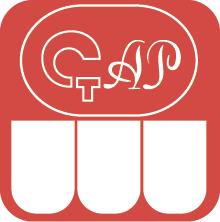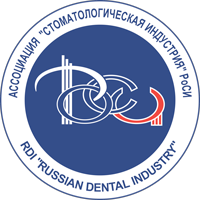DOI:
10.37988/1811-153X_2024_4_140Therapeutic efficacy of bacteriophage-based gel in the treatment of peri-implantitis mucositis
Downloads
Abstract
Inflammation of peri-implant tissues remains a current problem in orthopaedic dentistry. At the same time, there is no unified and clear opinion on the treatment of peri-implant mucositis. The aim of the study was to perform a clinical evaluation of the effectiveness of the gel containing bacteriophages “Phagodent” in the complex therapy of initial peri-implant mucositis.Materials and methods.
A total of 62 patients aged between 38 and 62 years (mean age — 50.9±1.5 years) were included in the study group. Their initial peri-implant mucositis was treated mainly with the gingival gel “Phagodent”. Clinical, radiological, clinical-laboratory and clinical-sociological examination tests were used to analyse the state of health of the peri-implant tissues.
Results.
In 2—3 weeks of treatment only one person (2%) remained with separate signs of inflammation. Only after 3 months did they appear in the form of periodic minor bleeding. They were stopped by repeated applications of “Phagodent” in combination with the “OKI” rinse containing ketoprofen lysine. On admission, 94% (58 patients) had mild to moderate peri-implant cuff bleeding. At 3 months after treatment the bleeding was mild. The plaque index of implants and prostheses showed average moderate values. After a course of complex therapy with the use of “Phagodent”, it decreased significantly. Clinical and social author’s methods of expert evaluation survey TAPATR and patient’s self-evaluation of peri-implant tissues condition PARTAT showed reliable improvement (p<0.01) of health level and its maintenance 3 months after treatment (p<0.02).
Conclusion.
The use of “Phagodent” gel with bacteriophages was very successful, as by the end of the first week of application, the symptoms of inflammation completely disappeared in the overwhelming majority of patients (61 people; 98%), were partially reduced in one patient (2%) and were completely eliminated in him during the repeated course of treatment. Such a high percentage of suppression testifies to the great effectiveness of “Phagodent” gel, and the rapid elimination of inflammatory symptoms (5—7 days) testifies to the undoubted effectiveness of this preparation in the treatment of initial peri-implant mucositis.
Key words:
peri-implant mucositis, gel with bacteriophages, prosthesis, implantFor Citation
[1]
Tagizade D.Z., Parshin Yu.V., Trezubov V.N., Rozov R.A. Therapeutic efficacy of bacteriophage-based gel in the treatment of peri-implantitis mucositis. Clinical Dentistry (Russia). 2024; 27 (4): 140—146. DOI: 10.37988/1811-153X_2024_4_140
References
- Rozov R.A. Development and substantiation of ways to improve implantation prosthetics of elderly patients with complete loss of teeth: dissertation. Tver: Tver State Medical University, 2023. 379 p. (In Russian).
- Salvi G.E., Aglietta M., Eick S., Sculean A., Lang N.P., Ramseier C.A. Reversibility of experimental peri-implant mucositis compared with experimental gingivitis in humans. Clin Oral Implants Res. 2012; 23 (2): 182—190. PMID: 21806683
- Zitzmann N.U., Berglundh T. Definition and prevalence of peri-implant diseases. J Clin Periodontol. 2008; 35 (8 Suppl): 286—91. PMID: 18724856
- Salvi G.E., Ramseier C.A. Efficacy of patient-administered mechanical and/or chemical plaque control protocols in the management of peri-implant mucositis. A systematic review. J Clin Periodontol. 2015; 42 Suppl 16: S187—201. PMID: 25495416
- Schwarz F., John G., Hegewald A., Becker J. Non-surgical treatment of peri-implant mucositis and peri-implantitis at zirconia implants: a prospective case series. J Clin Periodontol. 2015; 42 (8): 783—788. PMID: 26249545
- Trezubov V.N., Bulycheva E.A., Chikunov S.O., Rozov R.A., Ignat’eva A.A. Peculiarities and consequences of the immediate implant prosthetics using extended prosthodontics constructions (review). Clinical Dentistry (Russia). 2018; 1 (85): 34—38 (In Russian). eLIBRARY ID: 32759409
- Blinova A.V., Ryumshin R.A., Rumyantsev V.A. Periimplantitis the basic complication of the dental implantation (literature review). Upper Volga Medical Journal . 2018; 1: 13—18 (In Russian). eLIBRARY ID: 35361932
- Rozov R.A., Trezubov V.N., Tkacheva O.N., Kabanov M.Ju., Frolova E.V., Arutunov S.D., Gerasimov A.B. A prospective single-cohort study of an immediate prefabricated three-implant-supported full-arch prosthesis for treatment edentulous mandible in elderly patients: 3-year report. Adv Gerontol. 2022; 5: 755—765 (In Russian). eLIBRARY ID: 49901732
- Berglundh T., Armitage G., Araujo M.G., Avila-Ortiz G., Blanco J., Camargo P.M., Chen S., Cochran D., Derks J., Figuero E., Hämmerle C.H.F., Heitz-Mayfield L.J.A., Huynh-Ba G., Iacono V., Koo K.T., Lambert F., McCauley L., Quirynen M., Renvert S., Salvi G.E., Schwarz F., Tarnow D., Tomasi C., Wang H.L., Zitzmann N. Peri-implant diseases and conditions: Consensus report of workgroup 4 of the 2017 World Workshop on the Classification of Periodontal and Peri-Implant Diseases and Conditions. J Periodontol. 2018; 89 Suppl 1: S313-S318. PMID: 29926955
- Heitz-Mayfield L.J.A., Salvi G.E., Mombelli A., Loup P.J., Heitz F., Kruger E., Lang N.P. Supportive peri-implant therapy following anti-infective surgical peri-implantitis treatment: 5-year survival and success. Clin Oral Implants Res. 2018; 29 (1): 1—6. PMID: 27335316
- Tagizade D.Z., Parshin Yu.V., Trezubov V.N., Rozov R.A. Expert program for assessing the state of peri-implant tissues “TAPATR”. Certificate of state registration of the computer program №2024611315, effective from 19.01.2024 (In Russian).
- Tagizade D.Z., Parshin Yu.V., Trezubov V.N., Rozov R.A. Self-assessment program for the state of peri-implant tissues “PARTAT”. Certificate of state registration of the computer program no. 2024610680, effective from 12.01.2024 (In Russian).
Downloads
Received
April 5, 2024
Accepted
November 10, 2024
Published on
December 17, 2024









